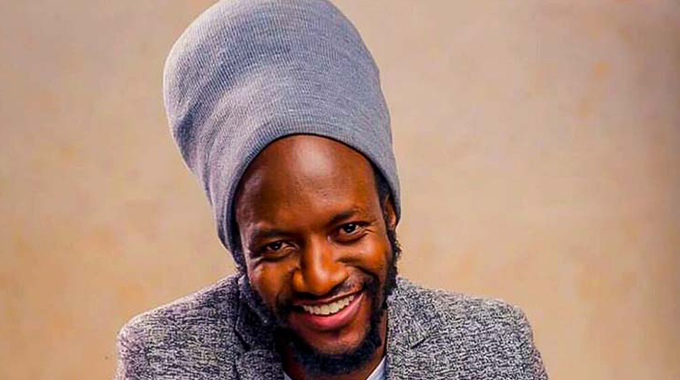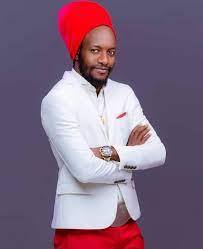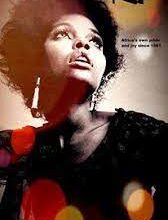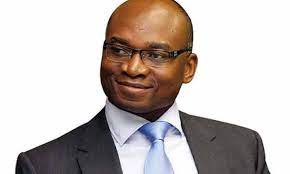Winky D – Reggae’s Lionel Messi, Ghetto Youths’ Champion
WALKING DOWN THE MEMORY LANE – LEST WE FORGET WALKING DOWN

Profile – Winky D

By Kamangeni Phiri
IF Zimdancehall artiste, Winky D, “(Lionel) Messi we Reggae,” was a product, the label on the packaging would read, “Export Quality”.
The Ninja President, as his fans fondly call him, is one Zimbabwean musician who can stand toe to toe with top foreign artistes, giving them a run for their money.
His stage presence, choreograph and lyrical content have humbled many an international artiste, especially when sharing the stage with them on his home turf.
Winky D, backed by his group, Vigilance Band, is at a different level when it comes to live shows. He is known to pack venues to capacity wherever he performs, be it in Harare, Gweru, Bulawayo or Victoria Falls.
And he doesn’t need to do much.
On stage, the singer turns into a choir master, as he leads his fans – the choir – in song. The special bond and rapport between the musician and the fans is apparent. Winky D only has to introduce the opening lines of a song then the fans join in, doing the rest.
“Few Zimbabwean artists have generated the excitement Winky D whips up at the mere mention of his name in recent years. The man is without peer on the dancehall and reggae scene in Zimbabwe at present,” noted journalist-cum-writer, Wonder Guchu, a former entertainment editor with the Herald writing on his blog, Intimacy with Zim Musicians.
And the brother can flow.
Armed with fresh verses that capture the moment, the talented Zimdancehall icon effortlessly fuses in rhyme English and Shona lines. Ghetto youths call it the flow and they love it.
The Ninja President always has fans eating out of the palm of his hands each time he steps on stage.
Most of his fans – he calls them MaNinja, or family – are mostly ghetto youths who find the artiste’s generous use of street lingo in his songs irresistible.
Another attraction for the youth is the message of resistance and endurance carried in the music. Songs such as, 25, Njema, iJipita, Siya So and Gafa Mu Parliament, among others, have struck the right cord with the fans as they tackle issues obtained in a country characterised by corruption, maladministration and a shrinking economy.
Parallels can be drawn between Winky D’s message and that of the chimurenga doyen, Thomas Mapfumo, who also identifies with the downtrodden and the poor.
Winky D, real name Wallace Chirumiko, is a talented popular Zimbabwean reggae-dancehall artist born in Harare, in February, 1983.
The 39-year old musician grew up in Kambuzuma playing with other ghetto youths in the dusty streets of the high density suburb. For his primary education, Wallace attended Rukudzo Primary and proceeded to Kambuzuma High 1 for his high school education.
Growing up in Kambuzuma, Winky D says he was actually at a “school of life” drawing lessons from the streets.
“It was like the kind of schooling that I couldn’t get from the physical schools we all know. There were so many lessons from kindergarten up until I was a grown up man. The challenges that we faced growing up in the ghetto, some may say they were challenges, but I regard them as lessons. They made me who I am today.
We might not like it when we are in that situation or moment but it hardened me. If I am to be in that situation again, it won’t be an alien one to me. I will know how to hold on to the ropes and sail through,” he told online TV host, Trevor Ncube in his programme, In Conversation with Trevor last year.
Wallace Chirumiko’s musical talents have earned him a number of sobriquets such as Big Man, Dancehall Igwe, Gafa, ChiExtra, Ninja President, Messi we Reggae and of course the most popular of them all, Winky D, plus many more.
Winky D ventured into music at an early age. As an eight year old boy growing up in Kambuzuma, the Gafa he was already collecting reggae cassettes and vinyls, which he would play on his father’s hi-fi.
His musical career started taking shape in his early teenage years when he began performing at small functions and concerts. At the age of 16 Winky D performed at the Ghetto Lane Clashes, which were DJ contests meant to unearth virgin youth talent in high density suburbs. He proved popular with the fans and continued performing on similar platforms. Wallace Chirumiko would give sterling performances that eventually earned him the nickname, ‘The Wicked DJ’ owing to the powerful message contained in his music.
He later shortened the moniker to Winky D.
Winky D is, in some quarters, considered to be one of the founding artistes of Zimdancehall although the genre had been in existence for decades before the Ninja President entered the music scene.
Artistes like the late Culture T, Major E, Booker T, Malvern S as well as Kuligan and Kalabash of the Pukunyu fame had been playing a local version of reggae music before it was branded Zimdancehall. Wink D, however, took the genre a wrung up.
When it comes to his family, the Zimdancehall chanter is a closed book. The artiste keeps his personal life very private.
To him, the social life of Wallace Chirumiko should be kept separate from that of Winky D, the artiste.
“I think everything concerning the brand Winky D we do give people updates, as it happens. Our social media handles, I have made sure they are platforms for me to send my message concerning the business side of Winky D as a brand,” he said.
Wallace is married and is a father of two but there is not much information about his wife or kids known to the public.
He was born in a family of six composed of five boys and a girl. Wallace’s father, Peter Chirumiko, died in 1989 but his mother, Esnath, is still alive.
The Ninja President could have inherited his singing talents from his late father who was a great mbira player in his time, though he never played at a commercial level.
Winky D works with his young brother, Trevor Chirumiko aka Layaan Soulja, the family’s last born. Layaan produces most of Winky D’s music and doubles up as the band’s stage manager and backing vocalist.
The Ghetto champion’s early works were dominated by explicit lyrics, gangsterism, violence and promiscuity as shown in tracks like ‘Vanotaura’ and ‘Rokesheni’. However, there were a few tracks where he would advocate for human rights and speak for the youth, especially the ones in the ghetto.
Winky D recorded his first songs with the help of Bartholomew Vera of Blacklab studios. His early songs, ‘Ndiri Rasta’ and ‘Dead Inna War’ received positive reviews from dancehall fans.
His music is heavily influenced by his upbringing in the ghetto. The artiste’s devotion to the poor people’s trials and tribulations and their pursuit for happiness is evident in most of his songs.
In the early years, Winky D would “cut and paste” Jamaican Riddims (beats) and only add his voice and lyrics to make a song. Some of his songs are even done in Jamaican patoise, a form of corrupted English popular in Jamaica. Winky D, however, mixes his projects with his native language (Shona) and Jamaican English.
His biggest break in music probably came in 2010 when he released Igofigo-The Unthinkable. The album had hits such as Vaudze (featuring Stunner), Controversy, Isu (featuring King Shady) and the monster hit, Musarova Bigman which became an anthem among ghetto youths that year.
With the album, Winky D’s music penetrated the elderly audience for the first time, even though it still had some roguish elements in it. He was to introduce a live band for the first time a year later in 2011.
“Music is not stagnant, it evolves. So you have to move with the pace and the times. When we started we were actually, just taking from the rhythms that they were making in Jamaica and we were actually voicing on those. And with the growth as an artiste, right now we said to ourselves, alright, we want to appeal to a wider market because it’s not everyone who is a reggae or dancehall fan in Zimbabwe so how best can we include all those people? Let’s try to play around with the sound and put an element that people can actual relate with, hence the music that I am producing today. The fans are the consumers of the content we create so we identify what the market needs and give them exactly that,” he told Zimbabwe’s media mogul, Trevor Ncube, last year.
The self-anointed dancehall king has a rich discography of 11 albums and many singles to his name. At the album launch of Gombwe-ChiExtra in 2018, Winky D walked away with a record US$70 000 for the initial copy.
He has taken his art to many foreign lands, touring the United Kingdom, US, Asia and South Africa, among many other countries.
Winky D has won many awards for his works both locally and international. In 2020 he was bagged the “Best Dancehall Artist” at the African Entertainment Awards USA, while last year he won a Jamaican award, the Best African Dancehall Entertainer at the 39th International Reggae and World Music Awards.
It is about time the world bowed to “Messi we Reggae”. (The best in the game).



306 Comments